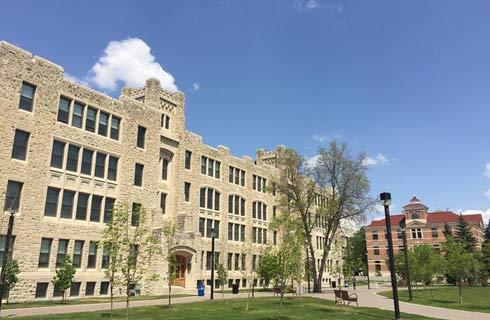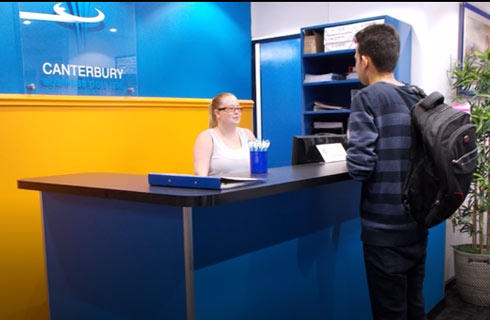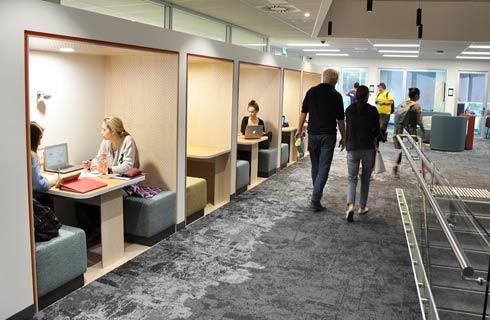国际学生入学条件
Applicants who have conducted their post-secondary education outside of the United States must have completed an undergraduate degree program equivalent to a University of California bachelor's degree by the beginning of their graduate program at UCSB. Equivalent undergraduate degrees usually include a minimum four years of university work and above-average scholarship. The degree must be awarded by an accredited institution. To be considered for admission, you must have received a bachelor's degree or its equivalent from an accredited university prior to the quarter for which you seek admission, and have at least a B average (3.0 GPA) in your undergraduate coursework. Satisfaction of minimal standards does not, however, guarantee admission, since the number of qualified applicants far exceeds the number of spaces available. An excellent command of written and spoken English is required prior to enrollment at UCSB. Applicants whose native language is not English are required to take the Test of English as a Foreign Language (TOEFL), the International English Language Testing System (IELTS), or the Duolingo English Test (DET). TOEFL paper-based test (PBT) 600, TOEFL internet-based test (iBT) and TOEFL iBT Home Edition 100, IELTS Academic and IELTS Indicator - Overall Band Score of 7.
展开
IDP—雅思考试联合主办方

雅思考试总分
7.0
- 雅思总分:7
- 托福网考总分:100
- 托福笔试总分:600
- 其他语言考试:Duolingo English Test (DET) - 120
CRICOS代码:
申请截止日期: 请与IDP联系 以获取详细信息。
课程简介
The Materials Department has an internationally renowned research program in Structural Materials. Research agendas are driven by critical national and international needs in the areas of energy, transportation, aerospace and security. Research focuses on emerging high-temperature and lightweight materials (including advanced oxides, carbides, and metallic alloys along with protective coatings), biological and bio-inspired materials, as well as novel multilayered, fibrous and hybrid architectures that provide new functionalities. <br><br>Structural Materials at UCSB has long been known for its multidisciplinary approach, strong collaborations with Mechanical Engineering and successful multi-investigator programs (such as MURI, GOALI, DMREF) . The programs integrate new computational schemes and advanced experimental techniques in order to guide discovery, development and synthesis of new materials. They also address material performance at the systems level in power generation and propulsion systems, energy storage devices, hypersonic flight vehicles, blast and ballistic resistant structures, and nuclear reactor environments.
展开







 预科
预科 奖学金
奖学金 实习机会
实习机会 在校学习
在校学习 跨境学习
跨境学习 校园授课-线上开始
校园授课-线上开始 在线/远程学习
在线/远程学习













 麦克马斯特大学
麦克马斯特大学

 安大略理工大学
安大略理工大学

 克莱姆森大学
克莱姆森大学

 南加州大学
南加州大学

 南加州大学
南加州大学

 北德克萨斯大学
北德克萨斯大学










